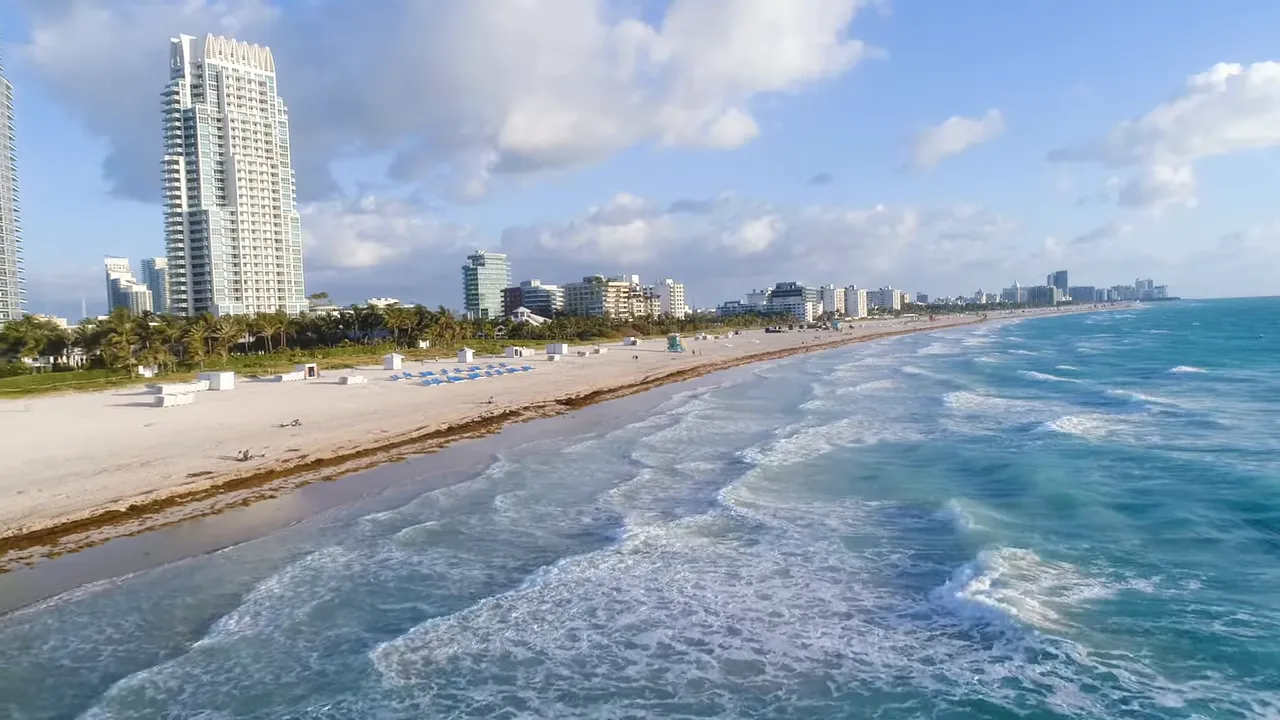Why Are People Moving To Florida? | Top Reasons
Table of Contents
- Introduction: Why Moving to Florida Is So Popular
- Florida Climate
- Florida Beaches and Coastal Life
- Taxes and Money in Florida
- Jobs and the Economy in Florida
- Schools and Education When Moving to Florida with Kids
- Things to Do After Moving to Florida
- Sports, Fitness, and an Active Lifestyle in Florida
- How Moving to Florida Affects Friends and Family Visits
- Wrapping Up
- FAQs
Introduction: Why Moving to Florida Is So Popular
Moving to Florida is a decision people make for all sorts of reasons: a job transfer, retirement, a desire for more space, or simply a need for change. If you are seriously considering moving to Florida, this guide walks through the eight most common drivers—climate, beaches, taxes, jobs, education, things to do, sports and fitness, and why friends and family suddenly want to visit more often. Think of this as a practical, honest rundown of what life looks like after you make the move to Florida.

VIEW HOMES FOR SALE IN SOUTH FLORIDA
Florida Climate
One of the simplest, most consistent reasons people are moving to Florida is the weather. The state’s tropical vibe and warm, year-round temperatures reduce winter hassles like shoveling and extra clothing layers. If you’re tired of lugging kids in and out of heavy coats or thawing the car on winter mornings, moving to Florida can feel like a perpetual sigh of relief.
Typical winter averages range from the mid 60s to mid 70s Fahrenheit in many parts of the state. South Florida rarely sees snow—officially the last measurable snow in that area was decades ago—so for most new residents, the seasonal wardrobe simplifies to shorts and flip-flops. Summers are hot and humid, which is why outdoor activities and water sports thrive all year long.
There are real health perks tied to warmer climates. Research suggests increased sunlight exposure helps boost vitamin D levels, which supports immune function, bone health, and mood. Warm temperatures also ease joint pain for many people with arthritis. For people prone to seasonal depression, the consistent sunshine can meaningfully lift mood and energy.
Florida Beaches and Coastal Life
Florida is famous for its coastline. With more than 825 miles of sandy shoreline and nearly 189 official beaches, there is a beach for almost every preference—quiet stretches, lively party beaches, family-friendly shores, and dog beaches. One of the advantages of moving to Florida is that you are rarely far from the water—many residents are within an hour’s drive of the nearest beach.
Living close to the ocean brings lifestyle benefits beyond swimming and sunbathing. Psychologists point to the calming effect of waves and sea air; negative ions generated by ocean waves are often associated with increased mental energy and improved sleep. Access to fresh seafood, water sports that support fitness, and the creative, relaxed mindset of coastal living are added bonuses.
Taxes and Money in Florida
Taxes are a huge motivator for people moving to Florida. The state has no personal income tax, and there is no state estate tax. For many people leaving high-tax states, the potential savings on income and estate taxes add up quickly.
Homeowners who declare their residence as a homestead receive significant property tax benefits. The homestead exemption reduces taxable value on a primary residence and Florida’s “Save Our Homes” cap limits annual increases in assessed value to a maximum of 3 percent or the change in the Consumer Price Index, whichever is lower. These programs can substantially reduce year-over-year property tax growth for long-term homeowners.
Florida also offers robust asset protections for certain types of accounts and property. Homeowner protections exist that prevent the forced sale of a primary residence to satisfy most judgments, and other protections apply to retirement assets, life insurance, and annuities. If financial planning and tax efficiency are priorities, moving to Florida can be appealing.
For business owners, Florida’s tax climate is attractive. There are no payroll taxes at the state level, and corporate income tax is modest relative to high-tax states. Florida ranks well on national business tax climate indexes, which is one reason many companies and entrepreneurs relocate operations and headquarters to take advantage of lower tax burdens and friendlier regulatory frameworks.
Jobs and the Economy in Florida
The Florida economy is large and growing. Recent metrics show strong job growth in several sectors, with Florida ranking near the top among states for job creation and workforce development. When you are moving to Florida, it is important to understand which industries are expanding and where opportunities lie.
Key growth areas include hospitality and tourism, agriculture, life sciences, information technology, aerospace, manufacturing, and clean energy. Florida ranks highly for pharmaceutical and medical manufacturing employment and has a sizable healthcare sector with thousands of establishments. As companies relocate to Florida, new roles in tech, R&D, and professional services have become increasingly available.

That said, wages in some service-oriented roles are not always high, especially when the cost of living is concentrated in urban areas. Skilled professionals—nurses, physicians, engineers, pilots, financial professionals, attorneys, and tech workers—often find strong demand and competitive compensation. If a job change is part of your reason for moving to Florida, research specific metro areas and industry clusters to target your job search effectively.
Schools and Education When Moving to Florida with Kids
When families are moving to Florida, education is near the top of the list. The state offers a range of education options: public, charter, and private schools, as well as a strong higher education network. Rankings show Florida doing well in higher education, and Florida students have posted solid results on national assessments in recent years.
There are excellent school districts and plenty of A-rated schools. As always, quality varies by neighborhood. Tools like greatschools.org and state Department of Education resources are useful when evaluating specific schools before a move. Florida has also invested in alternative assessment and progress monitoring to track learning more closely as the student population grows.
For parents and students, moving to Florida can mean access to top-tier universities and specialized programs. If education is a primary concern, focus your search on neighborhoods with strong school ratings and reach out to local education offices to understand enrollment boundaries and available programs.
Things to Do After Moving to Florida
One of the most enjoyable aspects of moving to Florida is the variety of activities available year-round. The state ranks high on lists of fun places to live because of its combination of climate, culture, and attractions. From theme parks and nightlife to snorkeling, historic towns, and outdoor festivals, boredom is hard to come by.
- Theme parks: Orlando is home to world-class parks with resident discounts and seasonal events.
- Outdoor sports: Boating, fishing, hiking, cycling, skydiving, and wildlife exploration are accessible across the state.
- Cultural experiences: Museums, festivals, performing arts, and food scenes vary widely from city to city.
Golf and tennis are especially prominent. Florida has more golf courses than any other state and is a global hub for tennis academies and events. Year-round climate means these activities do not need to be scheduled around winter weather, which is a major lifestyle benefit for active people.
Sports, Fitness, and an Active Lifestyle in Florida
Sports are integral to community life. Florida hosts professional teams across the NBA, NFL, MLB, and NHL, as well as major college football programs with passionate fanbases. Events like the Daytona 500 and international tennis tournaments bring excitement and tourism to the state.
If fitness matters, moving to Florida usually means more outdoor time. Cycling along coastal routes, paddleboarding, and beach workouts are common. For fans, plentiful sports options and a robust calendar of games and tournaments make it easy to stay engaged.
How Moving to Florida Affects Friends and Family Visits
One side effect of moving to Florida is that friends and family will likely visit more. With the beaches, theme parks, and pleasant weather, new residents often become hubs for family vacations and long weekends. Having a guest room or a comfortable sleeper sofa is practical; many new homeowners find their houses in high demand for visits.
Over time, frequent visits sometimes turn into relocations. Word of mouth has led many families to follow relatives who moved first. If you plan on moving to Florida, expect both company and, occasionally, requests to help friends or family find homes nearby.
Wrapping Up
Moving to Florida can be transformative for many people. Whether you are chasing sun and surf, tax savings, career opportunity, or a lifestyle change, the state offers strong reasons to make the switch. The eight areas outlined here—climate, beaches, taxes, job growth, education, activities, sports, and family visits—are the most common and consistent benefits new residents cite.
Practical next steps include researching neighborhoods, checking school ratings, estimating tax and cost-of-living differences, and visiting target areas during different seasons. If you’re planning a move to Florida in the near future, create a checklist with priorities like commute time, school options, proximity to amenities, and budget to compare locations more objectively. If you need help buying a home, contact me — call or text 561-609-1345.

VIEW HOMES FOR SALE IN SOUTH FLORIDA
FAQs
Are property taxes lower if I move to Florida?
Property taxes vary by county, but Florida provides a homestead exemption and the Save Our Homes cap that limit annual assessed value increases for primary residences, which can result in lower effective property tax growth compared to many states.
Will I save money on income tax after moving to Florida?
Yes. Florida has no state income tax, so residents do not pay state-level income tax on wages or retirement income. That can lead to significant savings for people relocating from high-tax states.
Is job growth strong enough to justify moving to Florida for work?
Florida’s economy has shown solid job growth in recent years, especially in hospitality, life sciences, tech, aerospace, and healthcare. Job prospects depend on your industry and skill set, so research local hiring trends in target metro areas before committing.
How good are schools if I move to Florida with children?
School quality varies by district and neighborhood. Florida has highly rated schools and strong higher education options. Use resources like GreatSchools and the Florida Department of Education to evaluate specific schools before moving.
Is the weather in Florida too hot in summer?
Summers are hot and humid in Florida. Coastal breezes and plentiful water activities help make the heat manageable, but be prepared for higher temperatures and consider factors like A/C costs and storm season when planning a move.
Will moving to Florida impact my retirement plans?
Potentially. The lack of state income tax and estate tax, plus homestead protections, make Florida attractive to retirees. However, consider healthcare access, proximity to family, and cost-of-living differences when assessing retirement plans.
What should I pack when moving to Florida?
Pack lightweight clothing, sun protection, rain gear for brief afternoon storms in summer, and items for outdoor living. If you are coming from a cold climate, you can leave many heavy winter items behind.
Is boating popular where I'll be if I move to Florida?
Yes. Coastal regions and many inland waterways support a strong boating culture. If you plan to boat, budget for fuel, maintenance, slip fees, and insurance.
READ MORE: Inside Bocaire Country Club: A Guide to Boca Raton’s Best Kept Secret

Jonathan Alexander creates educational YouTube content to guide potential buyers through the process of relocating to South Florida, offering insights on the best places to live and what to expect. As a seasoned Realtor®, he combines his expertise with a passion for helping clients make informed real estate decisions.















